INC-5 side event hits: China's practice injects new impetus into global plastic pollution control
On the morning of November 25, local time, the fifth meeting of the Intergovernmental Negotiating Committee on Plastic Pollution (INC-5) opened in Busan, South Korea. More than 1,400 negotiators from 178 UN Member States, as well as more than 2,300 representatives from intergovernmental organizations, UN agencies, non-governmental organizations and the media attended.
China took an active and constructive part in the negotiations
China led by the Ministry of Ecology and Environment, the Ministry of Foreign Affairs, the National Development and Reform Commission, the Ministry of Industry and Information Technology, the Ministry of Finance, the Ministry of Commerce and other departments as well as relevant research institutions and industry associations to participate in the conference delegation.
The Chinese delegation said that China has always attached great importance to the prevention and control of plastic pollution, and has established a whole-chain control system for plastic pollution through systematic policies and measures, and achieved remarkable results. On the basis of doing a good job at home, China has actively and constructively participated in the negotiation process, carried out communication and exchanges with all parties, urged member States to bridge differences, and made positive contributions to the conclusion of practical and feasible international instruments.
The INC-5 side called on all parties to support the conclusion of an international instrument
During INC-5, two side sessions jointly organized by the Beijing Entrepreneurs Environmental Protection Foundation (SEE Foundation), the Green and Recycled Plastics Supply Chain Joint Working Group (GRPG), Shenzhen Zero Waste Environmental Welfare Development Center, World Wide Fund for Nature (WWF) and All-China Environment Federation (ACEF) were held on 24 and 26 November respectively. Representatives from China's industry, academia and social organizations have conducted in-depth discussions with their international counterparts, shared experience and exchanged innovative practices, and jointly issued a plastic pollution control proposal, calling on all parties around the world to actively support and sign, and promote the achievement of international instruments through civil power.
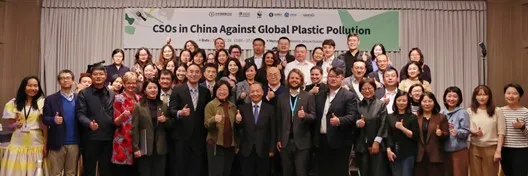
1. China's role in "Global War Shaping"
Plastic pollution has become one of the most serious environmental challenges in the world, and China has taken concrete actions to address this challenge and actively participated in the global plastic pollution control process.
As Xuefeng Wen, deputy director of the Department of Solid Waste and Chemicals of the Ministry of Ecology and Environment, pointed out in his opening speech at the side meeting on the 24th, "The Chinese government insists that the implementation mechanism of the global plastics treaty must match its ambition to effectively solve the problem, and we also recognize that the control of plastic pollution requires not only the efforts of the government, but also the joint action of social organizations and other stakeholders."
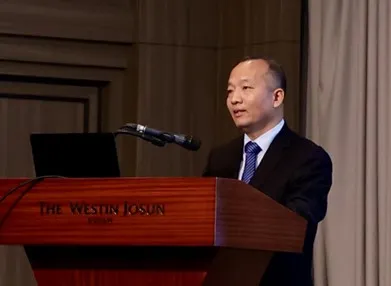
Eirik Lindebjerg, head of global plastics policy advocacy at WWF, introduced the progress of WWF's No Plastic in Nature project launched globally in 2019, and praised China's active role in various multilateral agreements from the perspective of international organizations. He encouraged non-governmental organizations to actively play a bridge role in international negotiations and global environmental governance, and promote multi-stakeholder attention to plastic pollution control.
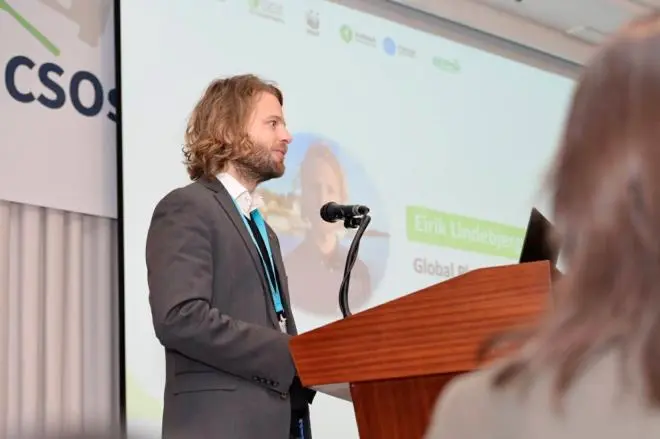
2. China's plastic pollution control ushered in a new opportunity of the "International Plastics Treaty"
Plastic pollution is a global environmental problem that negatively impacts the environmental, social and economic dimensions of sustainable development. Tackling global plastic pollution requires countries around the world to take national and international cooperation measures to combat plastic pollution.
Yonggang Wang, Secretary-General of the Recycled Plastics Branch of the China Materials Recycling Association, introduced the current situation of China's plastics policy. He said that the "Green recycled plastics Supply Chain Joint Working Group (GRPG)" led by a number of industry associations and jointly established by a number of enterprises is committed to promoting the easy recycling and easy recycling design of plastic products, improving the waste plastic recycling system, strengthening the construction of the traceability management system of recycled plastics, and mining the environmental value of recycled plastics.
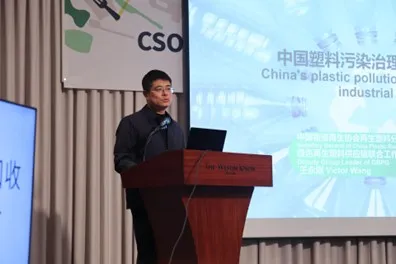
Yimo Zhang, Director of the Sustainable Blue Economy Program at WWF Beijing, introduced WWF's efforts in advocating for the Plastics Convention and promoting the Extended Producer Responsibility System (EPR), and called on countries committed to ending plastic pollution to take bold action and vote for all necessary elements at the INC-5 meeting. A binding treaty supported by a majority of countries will be more effective than a voluntary treaty supported by all countries."
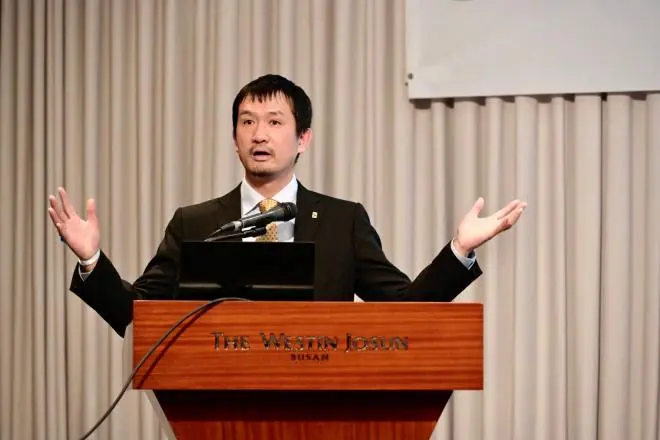
From the perspective of solidarity and cooperation among countries around the world, guests from various international institutions shared the successful experience of how their organizations provide diversified and localized solutions to plastic pollution, put forward the view of cooperation among countries to create new solutions for plastic governance, and expressed the expectations of the international community for China's important role in the negotiation of the plastics Convention.
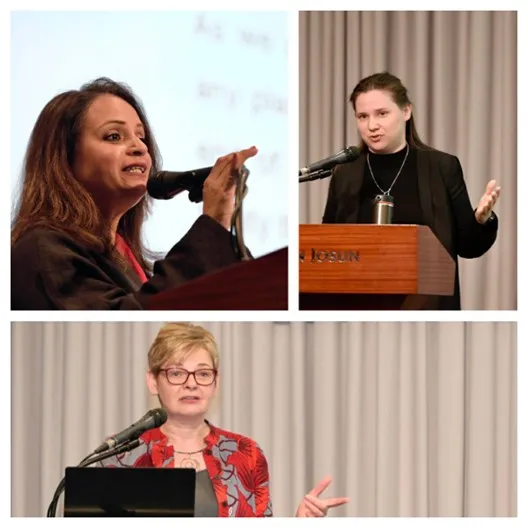
3. Acting together: Civil society organizations take on plastic pollution
With the development of domestic e-commerce and the new consumer demand continuously shaped by the Internet, people's consumption desires continue to upgrade and refine. The related problem of single-use plastic packaging pollution also continues to plague consumers: which plastics are problematic and which plastics are unnecessary? In the face of emerging plastic problems, how can the governance policies of subdivided industries be improved? Faced with these soul interrogations, a number of private organizations have been searching for answers through their own years of practice.
Da Mao, the director of Shenzhen Zero Waste, shared the achievements of the e-commerce detoxification campaign initiated by the Shenzhen Zero Waste Non toxic Pioneer Team from the unique perspective of plastic products on e-commerce platforms. It is reported that the "E-commerce Detoxification" campaign of the non-toxic pioneer also demonstrates that e-commerce platforms can play a very important role in assisting enterprises in plastic pollution control, especially in eliminating excessive toxic and harmful chemicals in plastic products and phasing out disposable plastic products prohibited by regulations.
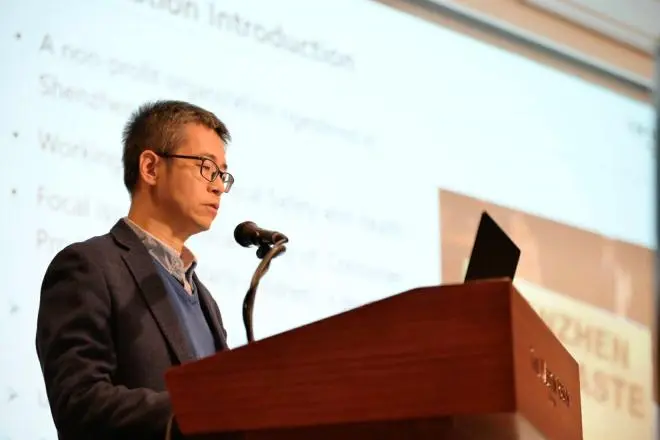
Ping Deng, Chief representative of Pacific Environment Chongqing Representative Office, called for the adoption of "problematic and non-essential plastics" decision tree model for policy and business decision-making processes, effectively identifying and avoiding problematic and non-essential plastics as much as possible, so as to solve the problem at the source and avoid following the state of "chasing governance" behind emerging industries. She mentioned that the milk tea industry, which is strongly bound to disposable plastics, can still replace the four major plastic reduction paths through source reduction, reuse, effective recycling, and responsible materials, and achieve a decoupling of dependence on disposable plastics, and get the support of consumers.
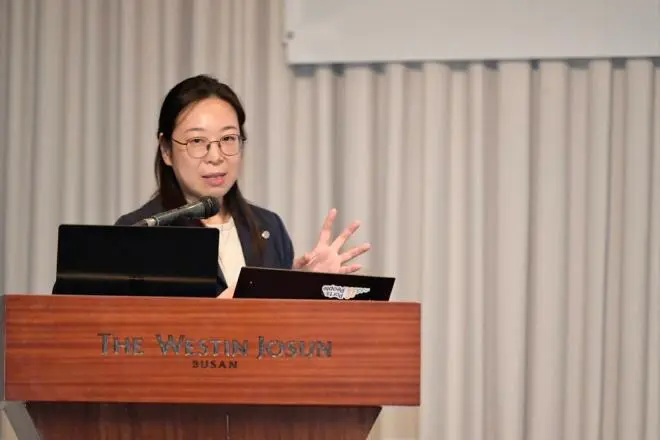
4. Multi-party dialogue: Corporate action and policy advocacy
Plastic pollution control is a multi-party systematic project, not only the government, enterprises can play an important role in this process, play the synergistic advantages of business to provide market and technical support.
As representatives of business and industry researchers, Mr. Yichun Ma, Senior Sustainability Manager, Asia Pacific, Kmart Australia; Dr. Runchao MAO, General Manager, SESOTEC China, Germany; and Deputy Director, GRPG Office, Senior Research Fellow, Doctoral Supervisor, Donghua University Bin Li and Xuesong Liu, president of Beijing Zero Waste Recycling Industry Promotion Association and founder of BOTTLOOP brand, participated in the roundtable dialogue on the theme of corporate responsibility in plastic green supply chain.
Gao Yang, deputy Director of the Green Recycled Plastics Supply Chain Joint Working Group Office, chaired the dialogue, and shared the experience and challenges of enterprises and industries from the green cycle design of plastic products, especially packaging, high value utilization of plastic waste, extended producer responsibility system and other aspects, and finally the roundtable guests expressed their prospects for the INC-5 negotiations.
Pay attention to the direction of the negotiations of the "Global Plastics Treaty" and jointly promote historic breakthroughs
With the official launch of the INC-5 meeting, the outcome of this round of negotiations will directly affect whether the "global Plastics treaty" can be successfully reached. In this "global war shaping", China's role is particularly crucial. In the future, Chinese social organizations and think tanks will continue to tell Chinese stories, contribute Chinese wisdom, and inject Chinese practices into global plastic pollution control.
Source: AdsaleCPRJ




